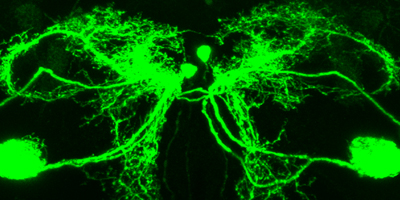 The Birmingham Centre for Neurogenetics vision is to enable discovery, communication and education in the emerging field of neurogenetics to increase knowledge, progress and wellbeing.
The Birmingham Centre for Neurogenetics vision is to enable discovery, communication and education in the emerging field of neurogenetics to increase knowledge, progress and wellbeing.
Neurogenetics is an emerging multi-disciplinary approach to understanding brain function from a genetic-mechanistic perspective, with relevance to all domains of human experience. Neurogenetics research is growing from the opportunities offered by cutting-edge genetic technologies in neuroscience, from understanding gene function to enabling brain research, using model organisms and in humans. These include genome-wide association studies, transcriptomics, epigenomics, gene editing, dissection of gene function, connectomics, dissection and probing of neural circuits and behaviour with optogenetics and automated analyses, human brain imaging and data science. Together these approaches are driving discoveries of molecular genetic mechanisms underlying brain structure and function at multiple scales from molecules to cells, neural circuits, behaviour and disease. The current revolution in gene editing and neuro-technologies is reaching beyond animal research into the human sphere, with tremendous therapeutic potential but also raising urgent challenges in ethics, law and philosophy. Neurogenetics sparks important public discussion and demands effective dialogues between science, law, ethics, philosophy and the arts to discover, create and educate, whilst safeguarding against distorted perceptions and protecting cultural and scientific progress and human well-being.
Our objectives are:
- To bring together the community of University of Birmingham academics researching into, or interested in, neurogenetics. We share excitement, facilitate scientific discovery and enable the timely education of younger generations of students. Our aim is to create and build on scientific and societal progress.
- To engage with international communities interested in neurogenetics to facilitate discovery, progress and knowledge sharing.